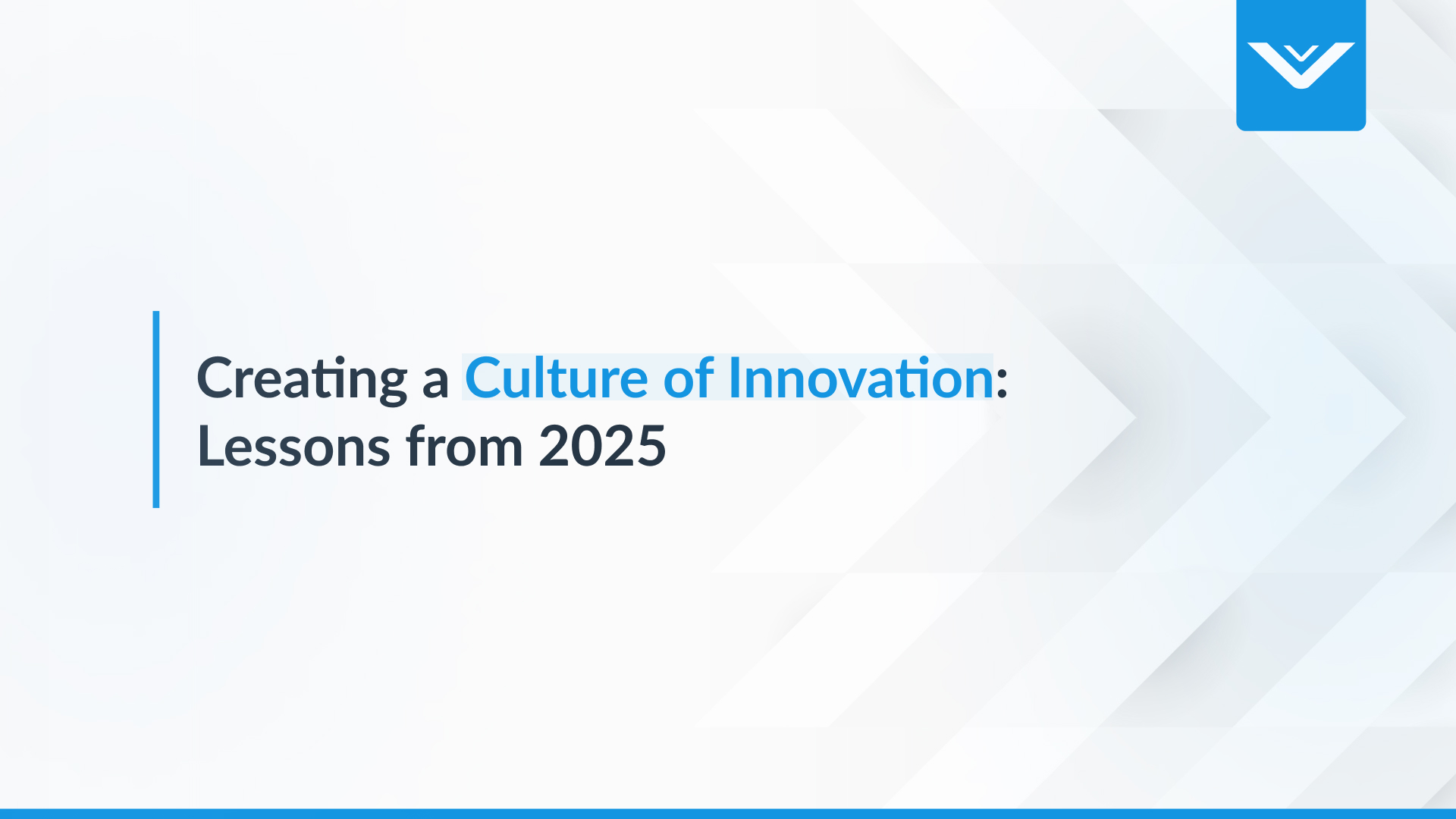

The world of business is undergoing a significant transformation thanks to the impact of Artificial Intelligence. From changing IT landscapes to improving customer experiences, AI has become an essential force across diverse industries.
AI's Transformative Force on Business
The world of business is undergoing a significant transformation thanks to the impact of Artificial Intelligence. From changing IT landscapes to improving customer experiences, AI has become an essential force across diverse industries. In this article, we’ll explore how AI is transforming businesses, taken from insights from our End Customer Panel at the 2023 Vation Ventures Global Summit. Our panelists included host Gamiel Gran, Chief Commercial Officer from Mayfield; Howard Miller, Chief Information Officer from UCLA Anderson School of Management; Bob Howland, Chief Digital Officer from Dawn Foods; and Neil Goodrich, Chief Innovation Officer from Envista Forensics.
We'll dive into the shift towards an "AI first" strategy and outline leadership's crucial role in its adoption. We'll also share insights into navigating the AI buyer's journey and preparing for AI's future in business. As we look to the future, it's clear that AI will continue to evolve and disrupt traditional business models. Join us as we explore how businesses can embrace this transformative force and emerge as industry leaders.

Understanding the Impact of AI on Business
AI technology is revolutionizing various industries, enabling businesses to gain a competitive edge through data-driven decision-making. By leveraging AI, businesses can enhance customer experience, improve operational efficiency, and achieve better outcomes. Machine learning, natural language processing, and deep neural networks are some of the key NLP terms associated with AI. With the ability to process massive amounts of data, AI applications like facial recognition and autonomous vehicles have become a reality. This transformative force in business is not just limited to science fiction but has practical applications that are reshaping industries.
The Shift to an 'AI-First' Strategy in Business
"AI is quite transformative, as we are at the beginning of the next generation of the entire IT stack. We think [the IT stack] is about to move to an AI-first thesis. - Gamiel Gran, Chief Commercial Officer, Mayfield
Businesses are increasingly adopting an 'AI-first' strategy to tap into the vast potential of AI technology. By leveraging AI capabilities such as data analysis, pattern recognition, and predictive modeling, businesses can transform their operations and decision-making processes. The integration of AI tools and techniques into various aspects of business processes enables intelligent decision-making, regardless of the organization's size. This strategic shift towards an 'AI-first' approach is no longer limited to large enterprises; smaller businesses also embrace AI technology. As companies prioritize AI, they carefully address its implementation's potential risks and challenges.
The Broad Impact of AI Across Diverse Industries
AI technology makes its presence felt across diverse industries, including healthcare, finance, manufacturing, and retail. In healthcare, AI is used for tasks like image recognition, diagnosis, and personalized medicine. Financial services benefit from AI's capabilities in fraud detection, risk assessment, and automated trading. AI enhances productivity, quality control, and supply chain management in manufacturing. Retail is experiencing a revolution with the help of AI, enabling personalized recommendations, virtual assistants, and chatbots. The broad impact of AI spans across these industries, driving innovation, efficiency, and improved customer experiences.
Embracing Change Management for Effective AI Integration
Embracing change management is crucial for successfully integrating artificial intelligence (AI) into business operations. Effective leadership is vital in driving AI adoption, fostering a culture of innovation, and managing change. Overcoming data quality, privacy, and ethics challenges is essential for AI experimentation. Smooth integration of AI requires collaboration and communication across departments. Additionally, organizations must invest in employee training and upskilling to embrace AI technology. By embracing change management practices, businesses can navigate the complexities of AI integration and maximize its transformative potential.
The Crucial Role of Leadership in AI Adoption
"If you're not willing to do the hard work, you're going to make bad decisions." - Neil Goodrich, Chief Innovation Officer, Envista Forensics
Leaders play a vital role in the successful adoption of AI technology within organizations. They need to create a compelling vision and clearly define the goals and benefits of AI to stakeholders. Effective leadership fosters a culture of innovation, encouraging experimentation and providing the necessary resources for AI initiatives. Collaboration, engagement, and continuous learning are also crucial for successfully implementing AI. Leaders must address concerns, manage risks, and ensure the ethical use of AI technology. By providing strong leadership, organizations can navigate the challenges of AI adoption and leverage its transformative power to drive business growth and innovation.
Overcoming Challenges in AI Experimentation
AI experimentation presents various challenges that must be overcome to ensure reliable and accurate results. One such challenge is dealing with data quality, including issues of data labeling and bias in training data. Ethical considerations, transparency, and accountability are crucial in AI research and development. When conducting AI experiments, Organizations must address data privacy, security, and compliance concerns. Additionally, AI model testing, validation, and evaluation are essential for achieving trustworthy outcomes. Overcoming these challenges paves the way for successful AI experimentation and unlocks the transformative potential of artificial intelligence in business.
.webp)
Navigating the AI Buyer's Journey: A Focus on Business Solutions
Businesses must strategically navigate the AI buyer's journey to find the right solutions. Vendors need to prioritize collaboration and long-term value rather than simply focusing on sales. Proof-of-concept initiatives are crucial for evaluating and selecting AI solutions that align with business objectives. Before making AI investments, businesses should assess vendor capabilities, technology, expertise, and support services. The selection of AI solutions should be driven by the specific business problem, use case, and expected outcomes. Businesses can identify and implement AI solutions that transform their operations by carefully navigating the AI buyer's journey.
Vendor Approaches to AI: Partnership Over Sales
"Help me solve a problem. Don't sell me a product." “(A partner) shows that they have skin in the game to me, that they want to solve my business problem together." - Howard Miller, Chief Information Officer, UCLA Anderson School of Management
End customers seek AI vendors that prioritize collaborative partnerships, deep domain expertise, and thought leadership. A vendor should focus on business transformation, value creation, and solving business problems. Continuous learning, research, and innovation are integral to this approach in AI technology. AI vendors establish strong relationships with their clients by prioritizing collaboration over sales, working together to achieve desired outcomes. They bring expertise and guidance to navigate the complexities of AI implementation, leveraging machine learning, natural language processing, and other NLP capabilities. Through collaborative partnerships, vendors harness the power of AI applications and unlock their potential in various industries. This customer-centric approach sets them apart in the evolving landscape of artificial intelligence in the eyes of the end customer.
Preparing for the Future of AI in Business
Education and training programs are vital in equipping professionals with the necessary skills to harness the power of AI and drive business transformation. Continuous learning is also essential as AI technology continues to evolve rapidly. Collaboration between human intelligence and AI systems is key to maximizing the potential of businesses. However, anticipate and address potential risks associated with AI to ensure ethical use and safeguard data privacy. By embracing these principles and preparing for the future of AI, businesses can position themselves for success in an increasingly AI-driven world.
.webp)
Education and Change Management in AI Adoption
"The technology piece, I think, for many of us, is the easy piece. It's the change management, it's transforming leaders to think differently." Bob Howland, Chief Digital Officer, Dawn Foods
AI training programs enable employees to leverage AI tools, fueling business growth. Change management strategies address employee concerns, ensuring smooth integration of AI. Cross-functional training promotes collaboration, facilitating effective utilization of AI technology. Emphasizing the benefits of AI fosters a positive mindset, driving innovation and transformation. Ongoing learning and development programs keep professionals up-to-date with advancements in AI. By equipping employees with AI skills, businesses can harness the full potential of artificial intelligence. Through education and change management, organizations can navigate the challenges and opportunities presented by AI adoption, positioning themselves for success in the ever-evolving landscape of technology.
Future Predictions: The Continued Evolution of AI in Business
AI research and development will unlock new applications, pushing business boundaries. Advancements in deep learning techniques will enable more autonomous intelligent systems, revolutionizing industries. This will create unprecedented business opportunities. However, ethical considerations like transparency and accountability will be crucial in AI adoption. To achieve success, collaboration between human intelligence and AI systems is essential. Businesses can leverage big data and problem-solving capabilities by harnessing the power of machine learning, natural language processing, and other AI applications. As AI continues to evolve, it will shape the future of business, propelling us into a new era of innovation and transformation.
AI as a Catalyst for Business Transformation
AI technology has the potential to revolutionize industries, driving business growth and fostering innovation. By embracing AI, businesses can gain a competitive edge and adapt to the ever-changing market dynamics. To fully maximize the capabilities of AI, continuous learning, training, and collaboration among employees are crucial. It is equally important to prioritize the ethical use of AI, taking into consideration data privacy and human welfare, to ensure sustainable business transformation. The future of business lies in harnessing the power of AI, unlocking new possibilities for growth and advancement. With AI as a catalyst, organizations can navigate the challenges of today's business landscape and create a path towards a successful and prosperous future.
If you are ready to explore the possibilities of AI for your business, get in touch with us to discuss how we can help you on your AI journey through our AI Readiness Assessment program.
Spread the word.
Thousands of subscribers receive our newsletter every week breaking down what's happening across the technology community.
Join them today.
Keep Reading
.jpg)
Topic-Focused Innovation Advisory Councils: Year-End Insights
We finished up our 2025 Innovation Advisory Council calendar with three insightful, topic-focused sessions that revealed both the urgency and the opportunity ahead as companies seek to modernize responsibly and create lasting value.


Creating a Culture of Innovation: Lessons from 2025
Creating a culture of innovation means staying curious, supporting teams through uncertainty, and continuously raising the bar for what’s possible. The technology will keep changing. The pace will keep accelerating. But organizations that invest in their people and cultivate the right culture will always find their next summit and the energy to climb it.


.jpg)
